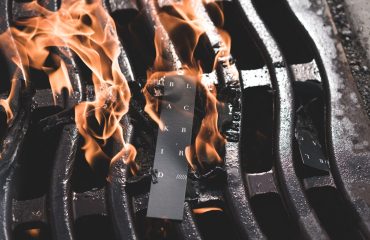The world of industrial piping is constantly evolving, driven by the need for stronger, lighter, and more durable materials. One exciting advancement is the development of carbon fiber-coated steel pipes. This innovative technology combines the inherent strength and cost-effectiveness of steel with the exceptional properties of carbon fiber, resulting in a superior product with a wide range of applications.
Enhanced Strength and Stiffness: A Superior Material Blend
Steel pipes, while robust, can be susceptible to bending and buckling under extreme pressure or heavy loads. Carbon fiber, renowned for its incredibly high tensile strength and stiffness-to-weight ratio, significantly addresses this limitation. By applying a carefully engineered layer of carbon fiber to the outer surface of the steel pipe, the composite structure gains substantial improvements in both strength and stiffness. This enhancement allows for the use of thinner-walled steel pipes without compromising structural integrity, leading to weight reduction and cost savings. The carbon fiber acts as a reinforcement, distributing stress more effectively and preventing premature failure under demanding conditions.
Unmatched Corrosion Resistance: Extending Pipe Lifespan
Corrosion is a major concern in many industrial applications, especially in harsh environments like chemical plants, oil and gas pipelines, and marine settings. Steel pipes are vulnerable to rust and degradation, leading to costly repairs and replacements. The carbon fiber coating acts as a protective barrier, significantly improving corrosion resistance. This is particularly crucial in environments with high humidity, salinity, or exposure to aggressive chemicals. The composite structure’s resistance to electrochemical processes extends the lifespan of the pipes, reducing maintenance costs and ensuring operational reliability for extended periods.
Lightweight Design: Reducing Transportation and Installation Costs
The weight reduction achieved by using thinner-walled steel pipes reinforced with carbon fiber translates into significant cost savings during transportation and installation. Lighter pipes require less manpower and specialized equipment for handling and placement, reducing labor costs and project timelines. This is particularly beneficial in large-scale projects where the transportation of materials over long distances is a major factor. The reduced weight also minimizes stress on supporting structures, potentially simplifying infrastructure requirements.
Applications Across Industries: From Oil & Gas to Aerospace
The versatility of carbon fiber-coated steel pipes makes them suitable for a wide array of applications across diverse industries. In the oil and gas sector, these pipes are used for transporting high-pressure fluids and gases, offering superior durability and safety. The aerospace industry utilizes them in aircraft structures and engine components, benefiting from their high strength-to-weight ratio. Chemical processing plants leverage their corrosion resistance for handling aggressive chemicals. Even the construction industry is exploring their use in structural supports, where their strength and lightweight properties are advantageous.
Manufacturing Process and Considerations: A Technological Marvel
The manufacturing process of carbon fiber-coated steel pipes involves several critical steps. First, the steel pipe is prepared by cleaning and surface treatment to ensure proper adhesion of the carbon fiber. Then, the carbon fiber layers are applied using techniques like filament winding or prepreg layup. These processes require precision and control to achieve the desired thickness and uniformity of the coating. Finally, the composite structure is cured using heat and pressure to bond the carbon fiber to the steel pipe, creating a strong and durable composite material. Careful consideration must be given to the selection of resin systems and curing parameters to optimize the performance and longevity of the final product. Quality control throughout the manufacturing process is essential to ensure consistent product quality and performance.
In conclusion, carbon fiber-coated steel pipes represent a significant advancement in piping technology. By combining the best properties of steel and carbon fiber, these pipes offer enhanced strength, corrosion resistance, and lightweight design, making them ideal for a wide range of applications. As the technology continues to mature and costs potentially decrease, we can expect to see even wider adoption of this innovative material in various industries.
SEO Tags:
- Carbon Fiber Coated Steel Pipes
- Composite Pipes
- High Strength Pipes
- Corrosion Resistant Pipes
- Steel Pipe Reinforcement




